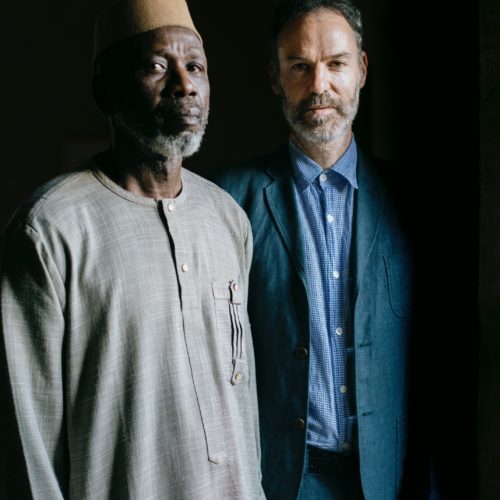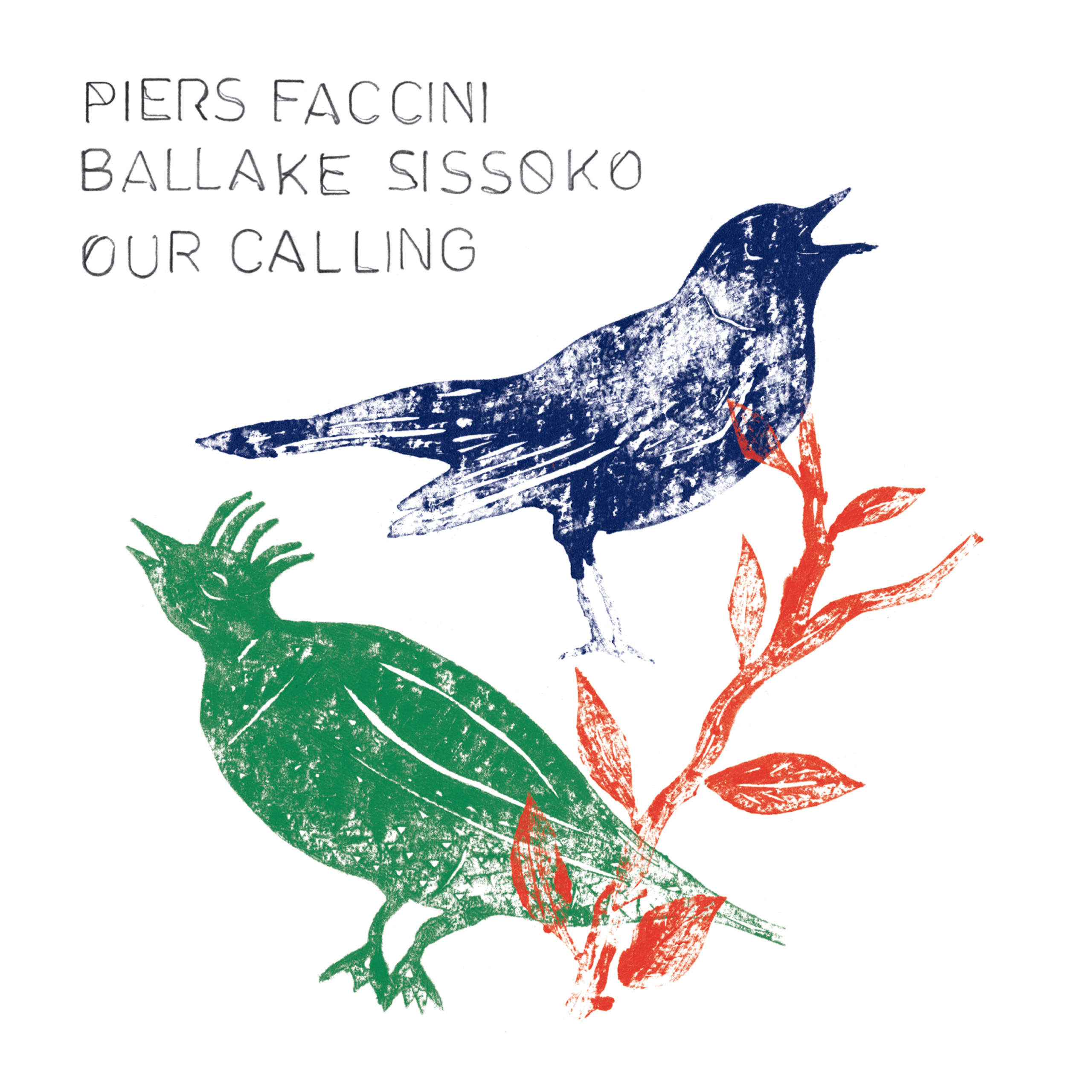
Our caling
—
Release on 14 February 2025
—
No Format!



The New Duo Album by Piers Faccini & Ballaké Sissoko: Our Calling.
Two decades after their first ever collaboration, British-Italian folk songwriter, Piers Faccini, and Malian kora virtuoso, Ballaké Sissoko, return with a mesmerising album: Our Calling. Set for release in February 2025, this new and captivating musical dialogue — between a prodigious instrumentalist at the height of his powers and a gifted songwriter and wordsmith — deftly bridges continents and traditions, inventing new song forms.
The seeds of Our Calling were first planted when Sissoko and Faccini met at Label Bleu in the early 2000s. Their friendship grew as they linked and explored uncharted paths between Mandé traditions and folksong forms. Sissoko was a guest on Faccini’s second solo album Tearing Sky in 2005. In 2020, their exchanges found inspiration under the label Nø Førmat!, when Sissoko invited Faccini to sing “Kadidja” in the Bambara language on his acclaimed album Djourou, and later with “The Fire Inside”.
With its ten finely crafted tracks, Our Calling is a sonic and narrative praise song for migration in all its manifestations: seeds borne by the winds; Nightingales flying between West Africa and Europe at the turn of the seasons; humans, across the centuries, and along trade routes, sharing musical practices and rhythms.
The entirely acoustic dialogue of Our Calling was recorded to tape live in Paris over five days by Frédéric Soulard, bringing together a wonderful cast of musicians, including the duo’s mutual friend, the cellist Vincent Segal, and longtime collaborators Badjé Tounkara on ngoni and Malik Ziad on guembri. The album’s originality is that it feels deeply Malian at its core, while also being seamlessly infused with an essence of folk songwriting; the two elements blending without one ever overshadowing the other. “Ninna Ninna”, a traditional song from the south of Italy, which echoes Faccini’s roots and displays the duo’s capacity to merge their musical traditions, is the only song on the album not in English, and the only one not written by them.
Twenty years of friendship, and playing side by side, have ushered in a rare and profound musical alchemy between Faccini and Sissoko. It keeps the two voices distinct, and the traditions and stories they carry intact. Whole enough, in fact, for them to converse freely. There are countless examples of this on the album. Songs like “Shadows are” beginning with a bewitching solo kora played in a traditional mandé mode before morphing into what almost feels like a jazz standard one could imagine Chet Baker singing. Although a testament to the duo’s reverence for more ancient times of music, the songs are also firmly anchored in the 21st Century. At no point, do we hear the kora bending or adapting to find a place in a western song form, as has so often been the case in the world fusion heydays of the 1990s and 2000s.
The duo’s ambition when they began imagining the album was clear: the musical language begins and ends with Manding traditions and modes. The songs had that creative brief. Their melodies, although sung in English, are constructed and stepped along Manding lines. The ternary grooves of “North and South” and “Mournful Moon” are further examples of the duo’s complicity over the years. The originality of Sissoko and Faccini’s dialogue is best exemplified with the song “If Nothing is Real” — a song that succeeds in finding a home away from home, both on the African and European continents. It is a testament to the Nightingale, or Sorofé Kono in Bambara, the songbird that first inspired these old friends to compose music of their own calling.